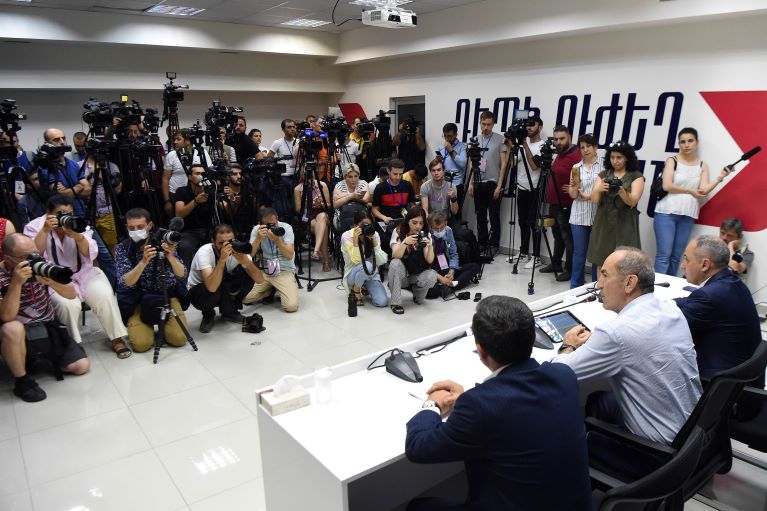IREX media and information study explores the impact of media polarization in Europe, Eurasia, and Central Asia

Continued effects of the COVID-19 pandemic and deepening politicization of the media have impacted the media and information sector in 18 countries throughout Europe, Eurasia, and Central Asia, as highlighted in IREX’s 2022 Vibrant Information Barometer (VIBE) for Europe and Eurasia.
Through in-country expert panels, VIBE assesses how vibrant countries’ information systems are in the digital age and explicitly examines newer concepts such as media literacy and information bubbles, along with the quality of information in the media and information sector.
The 2022 edition of VIBE, which examines the media landscapes for calendar year 2021, shows that countries in all three regions continue to be affected by actions their governments have taken to withhold public health information and data about the pandemic and vaccination campaigns. In more repressive countries, such as Turkmenistan, the government insisted that the country did not have a single case of COVID-19, and state media refused to even use the words “coronavirus” or “COVID” in reports. In less extreme cases, such as Kazakhstan, the continued pandemic highlighted government agencies’ poor crisis communications skills and difficulty in disseminating high-quality public information—and the population’s tendency to trust social media and messaging apps more than the media.
Experts also discussed the deepening politicization and polarization of their countries’ media and information space. Media content across all three regions continues to be driven by the largely political interests and influences of their owners, leading to a decline in trust in media as well as a further erosion of constructive debate and discussion on important issues. The Montenegro study observed that people’s media preferences are based on political leanings, with easily identifiable media outlets as either pro-government or opposition, depending on their editorial content. The Armenia chapter echoed these sentiments, noting that outlets in the country work mostly in service to their political and entrepreneurial affiliations, representing those narrow interests and sacrificing ethical standards. Similarly, North Macedonia experts noted that political affiliations are evident as soon as an article is published.
VIBE is made possible by the support of the American People through the U.S. Agency for International Development (USAID). Please visit our website for country reports and the VIBE Explorer to examine and compare data trends, VIBE principles, regions, and individual countries.